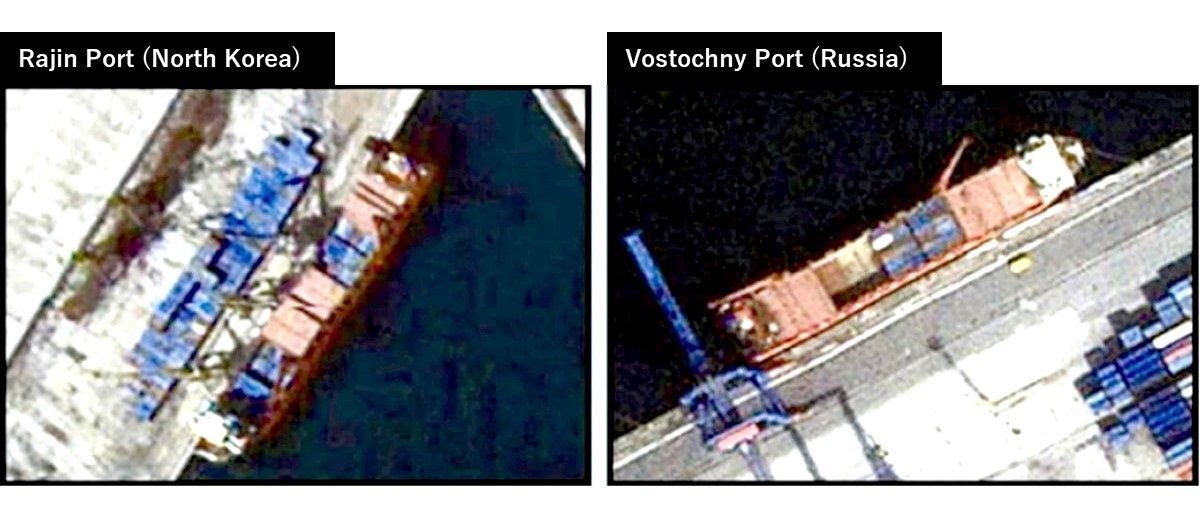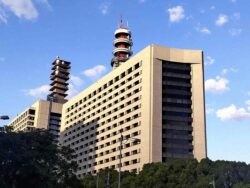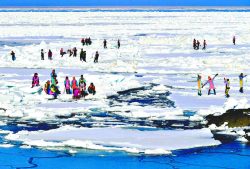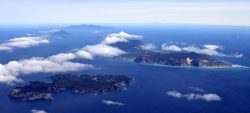North Korean Tankers spotted at Russia’s Vostochny Port; Brazen Oil Product Smuggling Becomes the Norm
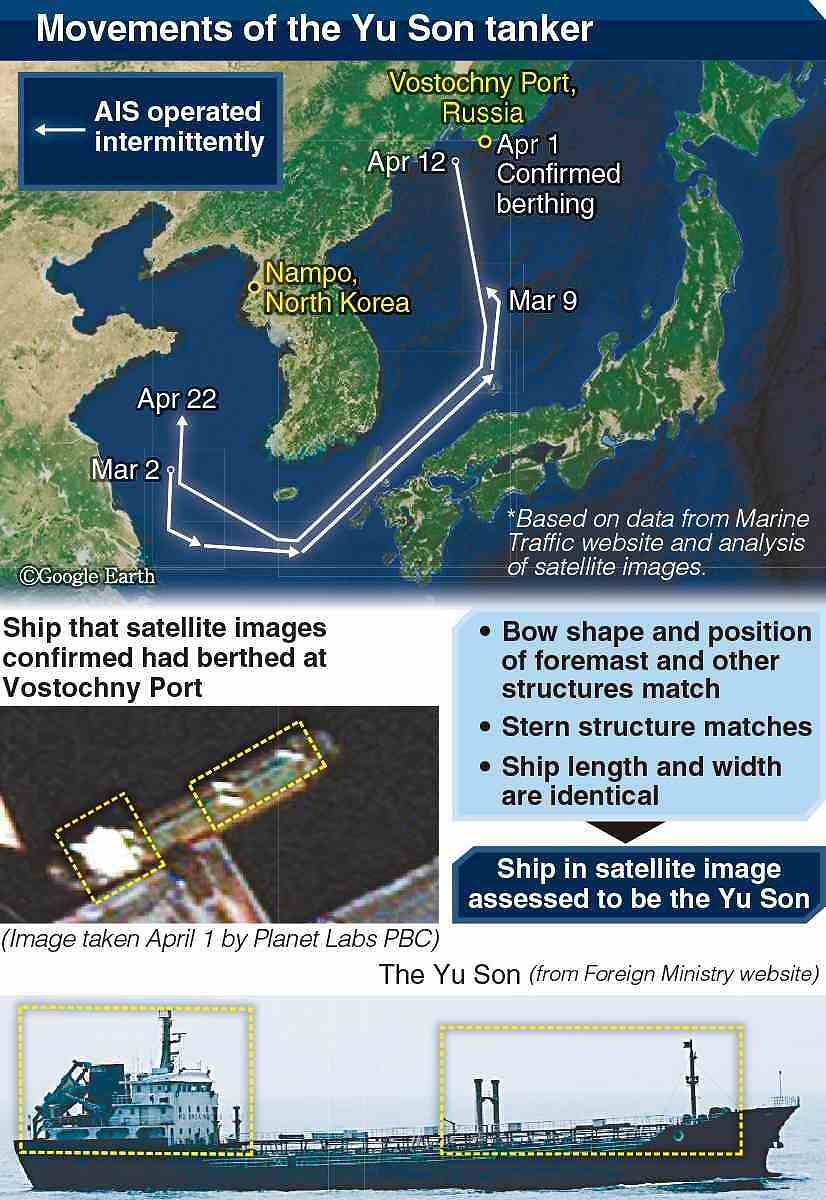
17:11 JST, June 7, 2024
Several North Korean oil tankers that allegedly violated U.N. Security Council resolutions visited a far eastern Russia port in early April and were apparently loaded with refined petroleum products that were shipped back to North Korea, The Yomiuri Shimbun has learned.
A Yomiuri Shimbun analysis of satellite images and other materials revealed that North Korea appears to be increasingly employing this brazen method to flout U.N. restrictions on imports of gasoline and other refined petroleum products, moving beyond just smuggling the products through operations involving ship-to-ship transfers at sea.
This analysis was conducted jointly with Katsuhisa Furukawa, a former member of the U.N. Panel of Experts that monitored the implementation of sanctions the Security Council has imposed on North Korea for its nuclear and missile development.
The analysis involved comparing the shape and size of ships captured in multiple satellite images of Vostochny Port taken by U.S. company Planet Labs PBC, with images released by the Foreign Ministry and the International Maritime Organization, a specialized U.N. body.
Images taken on April 1, 3, 7 and 10 showed that a total of four vessels whose distinctive features matched those of North Korean tankers had berthed at a quay near structures that appear to be oil tanks and sailed inside the port.
The vessel photographed on April 1 appears to be the Yu Son, which has been subject to Security Council sanctions because it was suspected of involvement in ship-to-ship oil transfer operations. The ships snapped on April 3, 7 and 10 appear to be the Un Hung, Paek Yang San 1 and Wol Bong San, respectively. All these tankers were sold to North Korea in violation of U.N. sanctions. The Panel of Experts has pointed out that the four ships were repeatedly suspected of violating Security Council resolutions that restricted the supply of refined petroleum products to North Korea.
The Yomiuri Shimbun attempted to trace the four tankers’ movements on the Marine Traffic website, which provides information about vessel locations around the world. However, the Automatic Identification System (AIS) signal for all four tankers was lost around the time they approached and departed Vostochny Port. The AIS is a system that automatically broadcasts a vessel’s location, speed, heading and other information. Vessels making international voyages are required to carry an AIS device under the International Convention for the Safety of Life at Sea, because it can help prevent collisions and manage sailing operations. It is possible the four tankers turned off their AIS to conceal their movements and the shipments of refined petroleum products.
In early March, the Yu Son sailed from the Yellow Sea off the west coast of the Korean Peninsula, passed through the Tsushima Strait and into the Sea of Japan. The tanker’s AIS stopped transmitting on March 9. Satellite images have confirmed the Yu Son was berthed at Vostochny Port on April 1. Although the exact movements of the ship around that period are unclear, its AIS resumed operating in waters off Vladivostok, Russia, on April 12, and the ship returned to the Yellow Sea via the Tsushima Strait.
Satellite images captured a vessel that appears to be the Wol Bong San sailing near Vostochny Port on April 10. This ship sent signals off the coast of Vladivostok on April 13, traveled through the Tsushima Strait and arrived near Nampo on North Korea’s west coast on April 20.
A U.N. Security Council resolution adopted in December 2017 limited North Korea’s imports of refined petroleum to 500,000 barrels per year. At a press conference in May, U.S. National Security Communications Advisor John Kirby said Russia had supplied more than 165,000 barrels of refined petroleum to North Korea in March alone, and the annual limit on these imports had already been exceeded.
A report by the U.N. expert panel had pointed out that North Korea had smuggled in refined petroleum products through ship-to-ship transfers conducted within its territorial waters and other locations.
“Since the spring of 2024, North Korean tankers have berthed right at Vostochny Port and procured petroleum products,” Furukawa explained. “This smuggling has become normalized, and it’s clear that U.N. sanctions aren’t functioning properly.”
Top Articles in Society
-

Producer Behind Pop Group XG Arrested for Cocaine Possession
-

Man Infected with Measles Reportedly Dined at Restaurant in Tokyo Station
-

Man Infected with Measles May Have Come in Contact with Many People in Tokyo, Went to Store, Restaurant Around When Symptoms Emerged
-

Woman with Measles Visited Hospital in Tokyo Multiple Times Before Being Diagnosed with Disease
-

Australian Woman Dies After Mishap on Ski Lift in Nagano Prefecture
JN ACCESS RANKING
-

Producer Behind Pop Group XG Arrested for Cocaine Possession
-

Japan PM Takaichi’s Cabinet Resigns en Masse
-

Man Infected with Measles Reportedly Dined at Restaurant in Tokyo Station
-

Israeli Ambassador to Japan Speaks about Japan’s Role in the Reconstruction of Gaza
-

Videos Plagiarized, Reposted with False Subtitles Claiming ‘Ryukyu Belongs to China’; Anti-China False Information Also Posted in Japan
